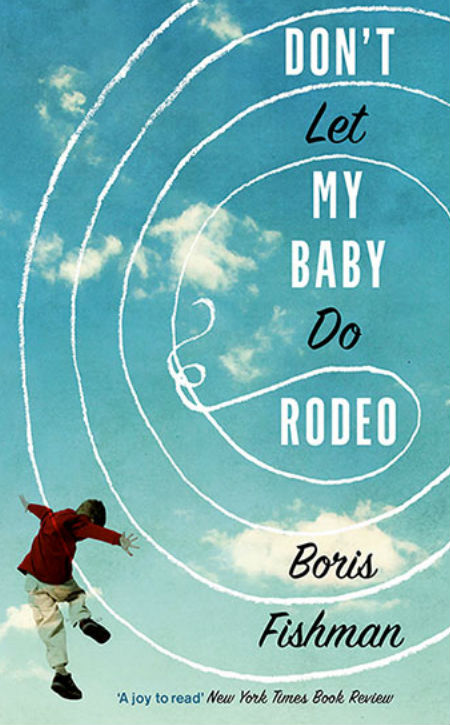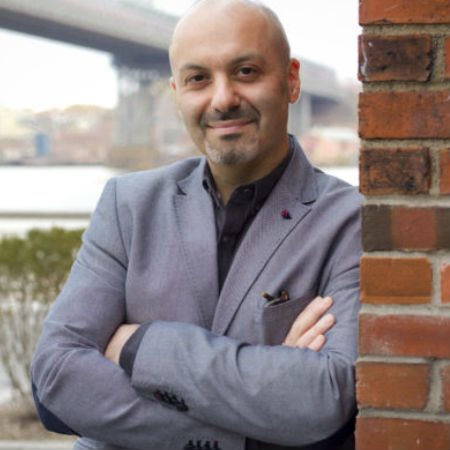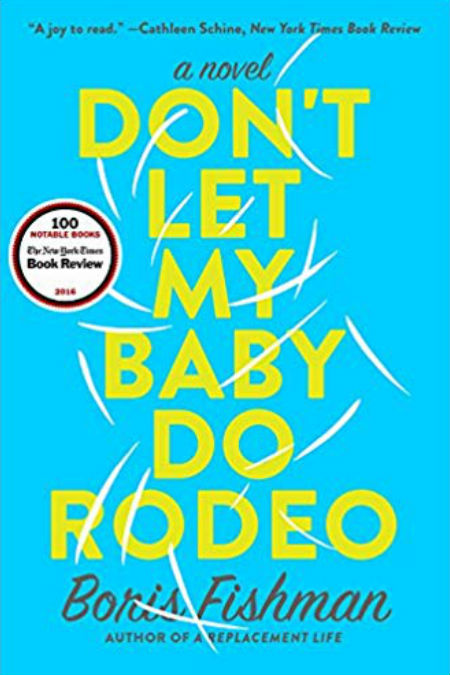
In this ever-more mobile digital age, where job tenure is fleeting, geographic locales are a home but for a moment, and social ties fray and fasten at the speed of tweet, we remain, as a species, heavily-dependent on a sense of place for our sense of identity.
Even when we move, without a second thought, from our childhood home to a place of study and then onto various towns and cities, and these days, countries, we will often refer back to a hometown or a place we most feel like we belonged, an anchor point in the benign turbulence that is our lives.
It’s not necessarily a repudiation of where we are now, and where we have been or wish to go; simply a recognition that this place most heavily shaped who we are and what we became and remains the focal point for our life’s journey upon which everything else pivots, like it or not.
For Maya Suleman, an immigrant in her college years from Ukraine who married Alex Rubin, a New Yorker who emigrated from Minsk, Belarus when he was 8, the much-adored son of Eugene and Raisa, and stayed in America to forge a life, and raise an adopted son Max, whose troubles kick the narrative of Boris Fishman’s second novel, Don’t Let My Baby Do Rodeo, into high gear, questions of identity and place are merely academic or a thing for idle musing anymore.
They become, in a very real sense, a matter of existential life and death when she sets out with a reluctant husband and son in tow, for Montana, to see if she can find out why it is that Max keeps running away, keeps eating grass and floating face down in rivers to stare at fish.
She is convinced, to the very depths of her unsettled, neurotic soul, one that has barely ventured in thought or actuality from her home in New Jersey, that Max will find peace if she can just get back to the state from which he was adopted, see his birth parents one more time and interrogate them on what will make her son happy.
“Frank’s eyebrows, of the same gray bristly mix as his beard, slunk together. ‘All right, now,’ he said. ‘Take it easy.’ The night shift regularly put him in acquaintance with the glitches and flaws of human design, but Maya didn’t seem crazy, only despondent. She nodded vacantly, grateful not to be dismissed so far from home, and turned back to her seat.” (P. 55)
What she’s really asking, and this is only something that comes to light in this beautifully-written, richly-wrought novel that deftly brings together emotionally-evocative drama and idiosyncratic humour to powerful effect, when Maya is on the road in Montana, is who she is.
Projecting everything onto her son, who it emerges is actually reasonably secure in his sense of self, and takes life as it comes in common with most children, she externalises the roiling, restive energy that drives her onwards, ever onwards, a lack of peace that sees her unable to truly settle or relax and which indelibly imprints on her fractious marriage or sometimes-troubled son.
The common denominator for the family, for all its ups and downs, its peaks and valleys, is Maya who has never quite found her groove in a society she loves but always feels somewhat of an impostor in.
What she discovers when she finally hits the road and leaves the suffocating smallness of New Jersey and her in-laws behind – she loves them but they have sculpted a small world buttressed by superstition and old world perspective but also humour-laden and flawed certainty of what the new world is like – is that it is she who isn’t at home, who is yearning for something else, for the other, an unspoken need to realise who she is and make something of that.

As an exercise in identity discovery and true understanding of sense of self, Don’t Let My Baby Do Rodeo is a delight.
It straddles the serious and the absurd, the deep and the eccentrically and humourously shallow with ease, offering up a portrait of one person’s life, and that of the people in uneasy satellite around her, that you find yourself happily and thoughtfully lost in.
Fishman slowly but surely unravels the real cause of Maya’s slowly-burbling distress, and the way in which it disguises itself, or it is allowed to be disguised by the one-time would-be cook and cafe owner, taking us on a journey that is as surprising for the protagonist as it is for us.
What seems like a simple, if emotionally-complicated and questionable, exercise in re-acquainting themselves with the birth parents Max doesn’t even know exist – he hasn’t been told he is adopted yet, a decision forged in a myriad conflicting desires and issues clung to uneasily by the Rubin family – becomes so much more as Maya discovers that she is the root of her family’s topsy-turvy world, and quite possibly, the source of her son’s inability to fully settle down.
“Maya colored, feeling the interloper’s familiar cluelessness. It, not Alex, was her true life’s companion. Just when she began to get free of the feeling, she mispronounced a word or failed to apprehend some invisible rule, and lived the nest days like a guest, a cherry pit of self-reproach in her stomach. How was one to know these things?” P. 211)
At times Fishman’s narrative just jump around in both sequence and intent, leaving you as befuddled as Maya often feels, but by and large, this is a wryly-clever and sensitive novel that explores what it is like to exist in a weird limbo where you are simultaneously at home and not, all at once.
If you have ever felt a niggling sense that you’re a little too square peg-ish for that round hole you should, in theory, find permanently and wonderfully invitingly comfortable, Don’t Let My Baby Do Rodeo will speak to you, echoing what it is like for anyone, but particularly immigrants or anyone who has uprooted themselves from a world they know intimately and well to one they almost do but not quite, to realise they haven’t quite reached a perfect accommodation with their new life.
Perhaps none of us really do, something Don’t Let My Baby Do Rodeo more than hints at with its narratively-uncertain resolution that nevertheless find some sense of peace for its restive main inhabitant, all of us forever perched between contentment and an impelling need to find that elusive something that will complete us and leave us feeling, in our minds at least, more at ease with who we are and in the case of Fishman’s fascinatingly real characters, where we are.
